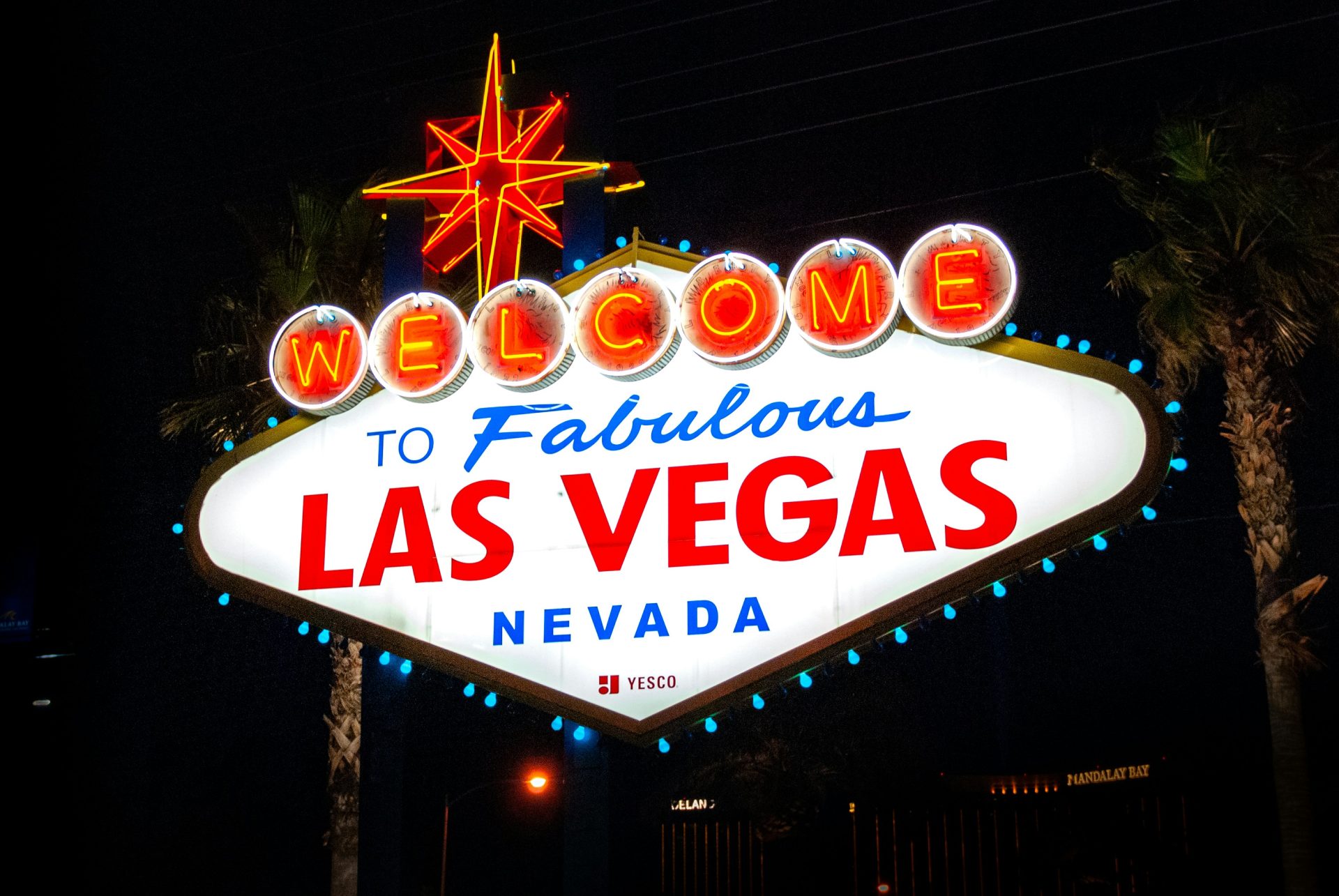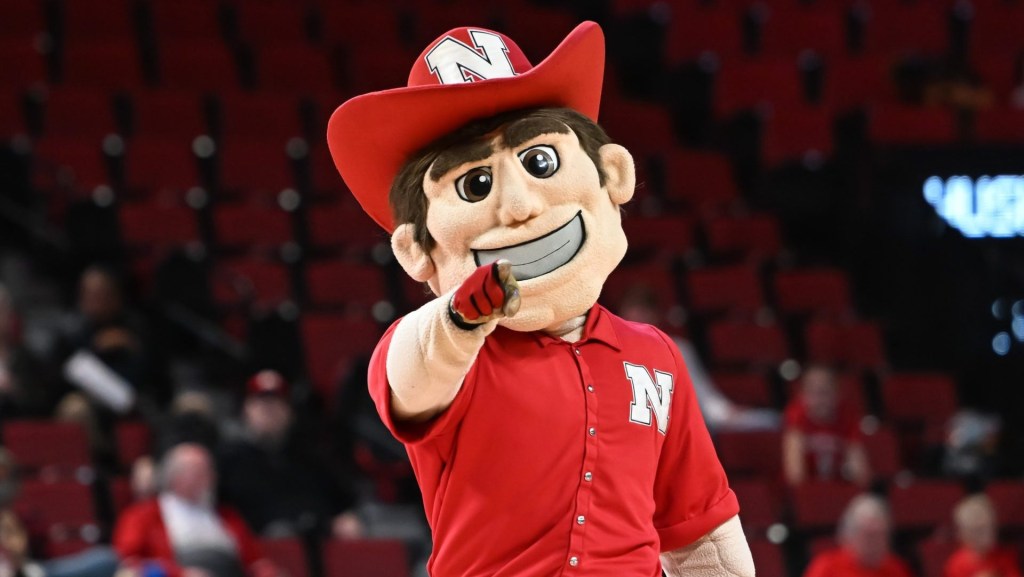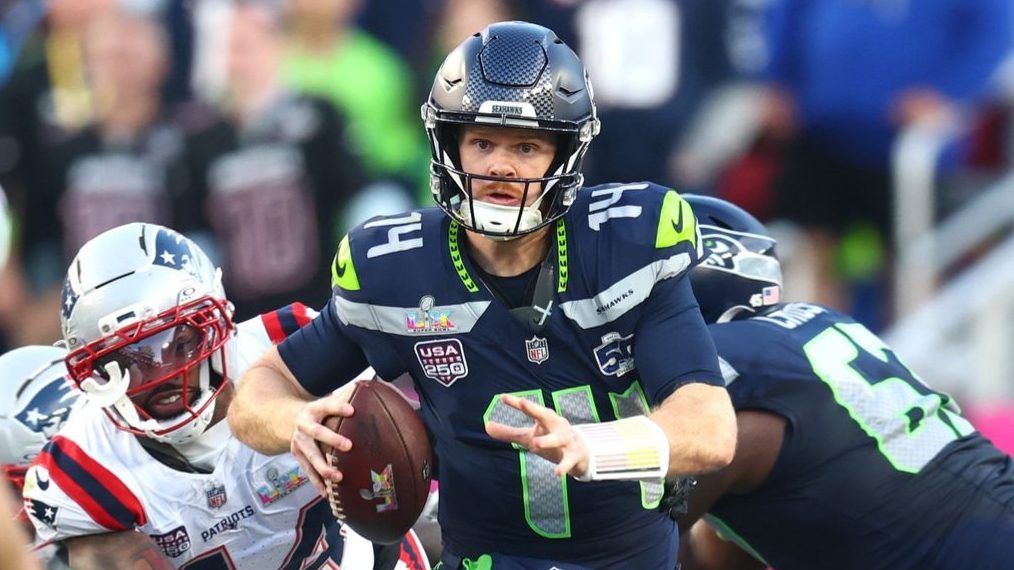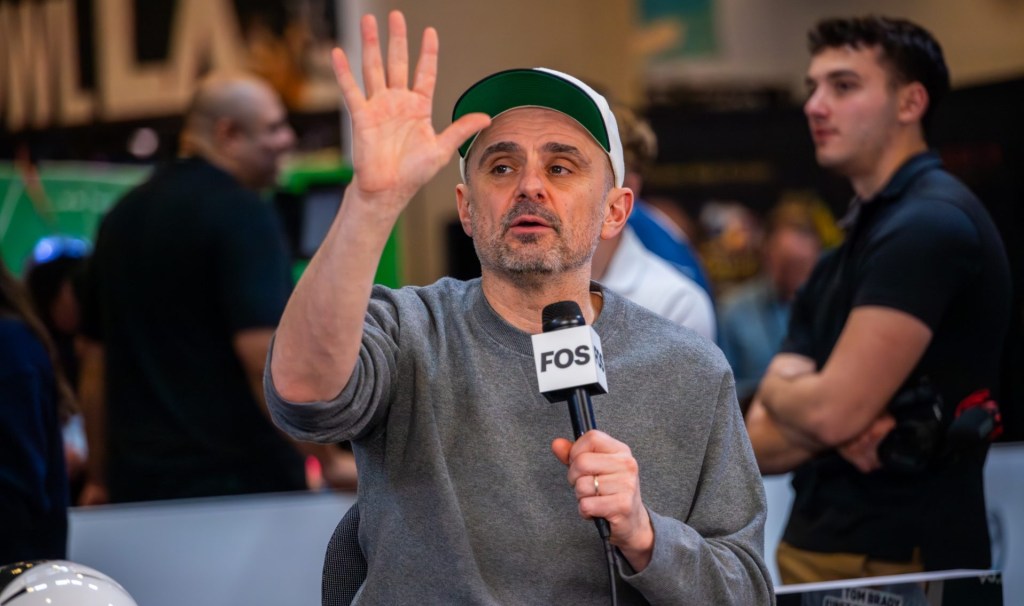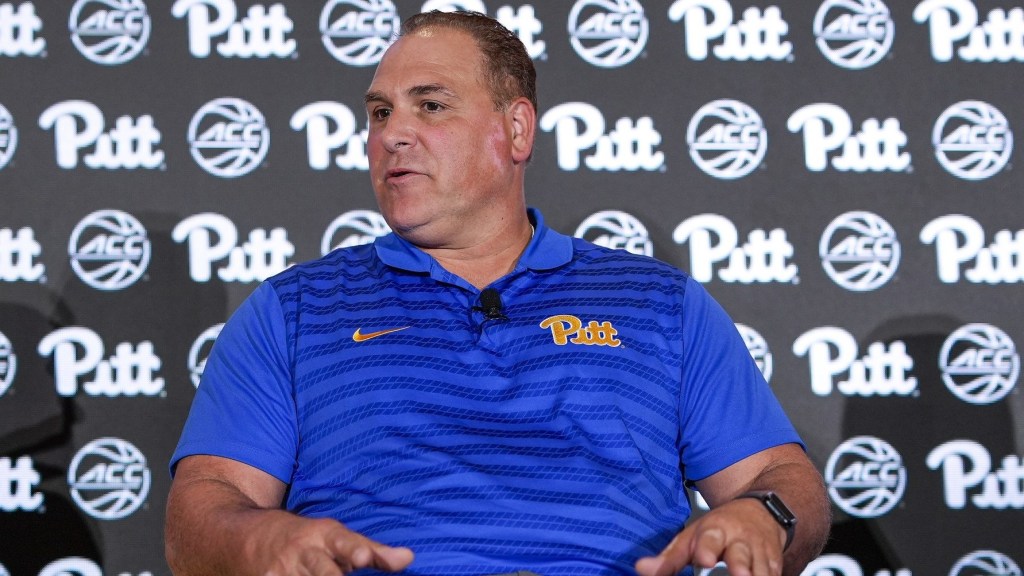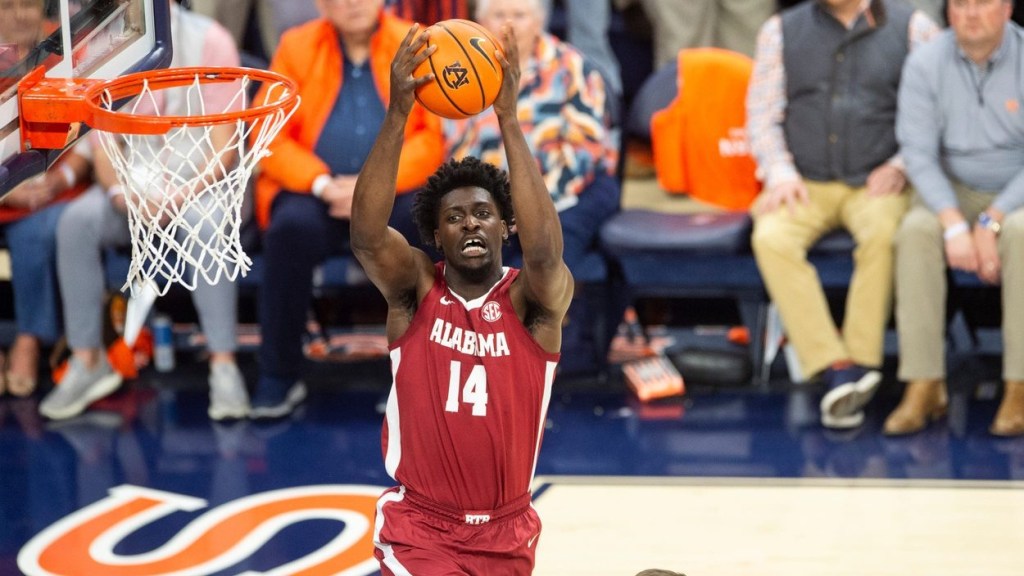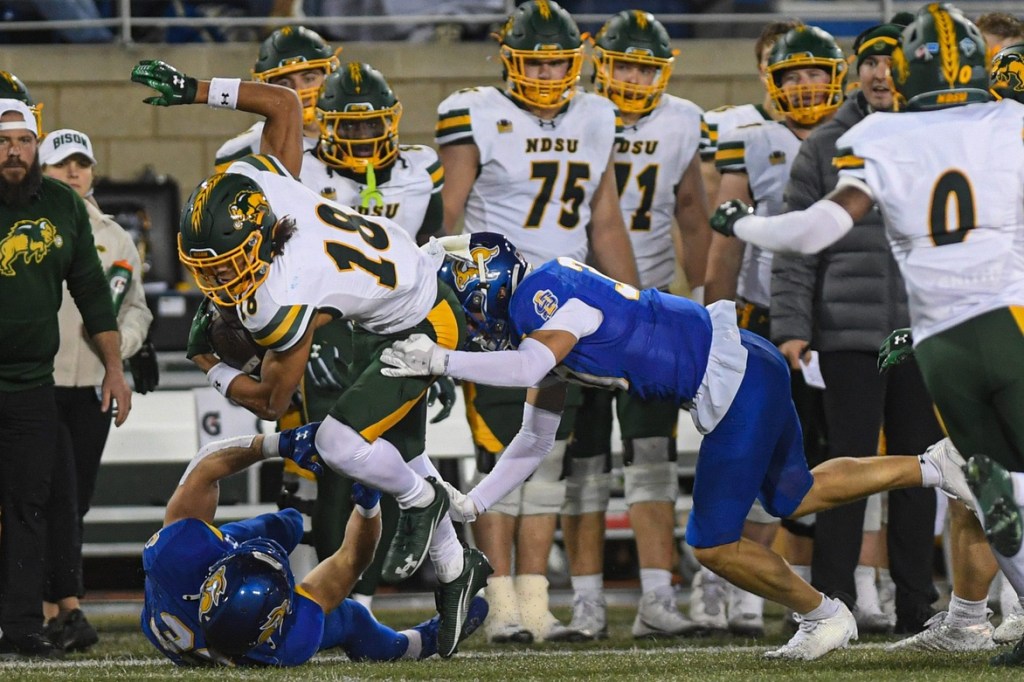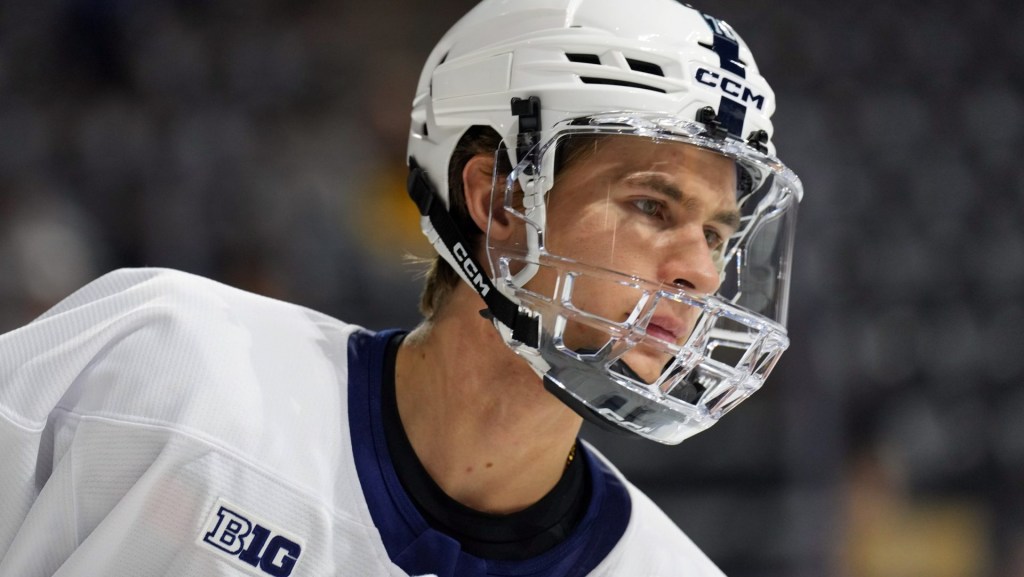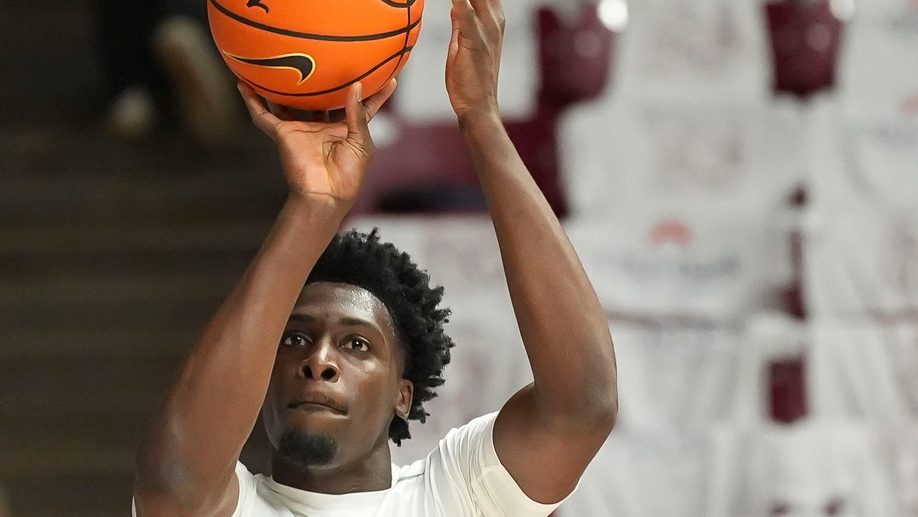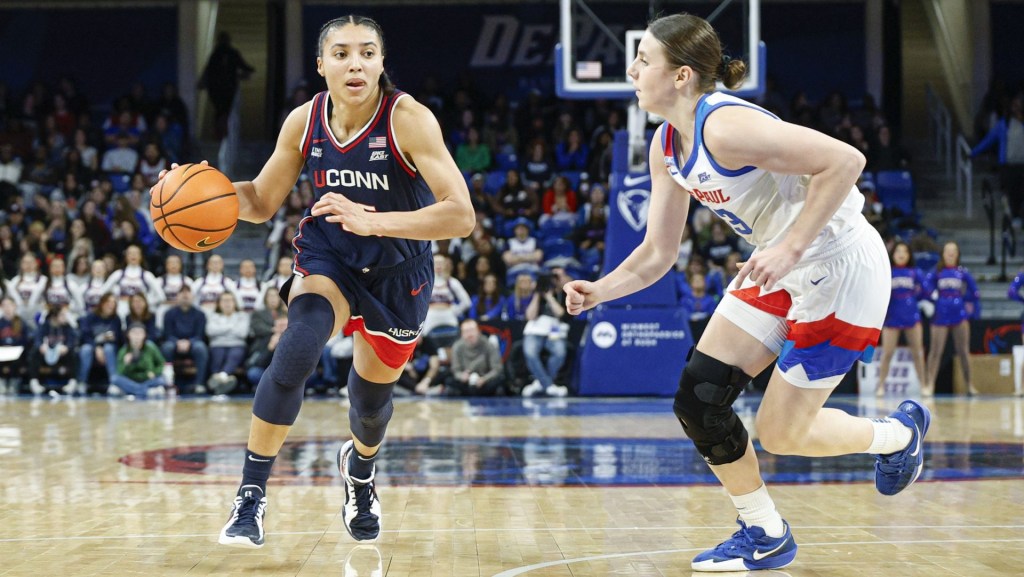LAS VEGAS — The trek from the hotel to the event space for Big Ten media days this year required a walk through a tourist attraction never before present at the conference’s football kickoff: a casino. From players to reporters, everyone was required to weave through a maze of slot machines and blackjack tables to get to the conference’s season kickoff event.
A 2018 Supreme Court decision prohibited individual states from banning sports betting and subsequent investment in several premier sports facilities, allowing Las Vegas to become a bona fide destination for college sports—a reality unthinkable a decade ago. Even the Big Ten, historically defined by Midwest heavyweights, has embraced the desert.
“The relationship that we have with college sports is symbiotic,” Las Vegas Convention and Visitors Authority COO Brian Yost told Front Office Sports during an interview at Mandalay Bay. “We love having it because it exposes new people to town. We love having it because fans love being here. And college sports likes being here.”
Long before the Professional and Amateur Sports Protection Act was overturned, only the Mountain West—home to founding member UNLV—had a reason to plant a flag in Vegas. The Mountain West began hosting basketball tournaments at the Thomas & Mack Center in 2000, just a year after the conference became operational, and has hosted nearly all its basketball championships there ever since. Commissioner Gloria Nevarez tells FOS that the city is “the perfect stage for marquee events.”
The Pac-12 started a relationship with Vegas when it first hosted basketball tournaments there in 2013. Eight years later, the conference hired the former president of sports and entertainment for MGM Resorts and Entertainment George Kliavkoff as commissioner. After Kliavkoff lost his job amid the Pac-12 dissolution in 2024, the league still opted to hold a one-off media event in Las Vegas last summer. (It has yet to announce when it’ll host future events when the new-look Pac-12 begins in 2026.)
Still, many power conferences, as well as the NCAA and CFP, shunned Las Vegas for decades.
The 2018 ruling “cleared the way for college sports to be in a gambling town,” Yost said—and Las Vegas authorities began immediately investing more heavily in sports facilities. Allegiant Stadium, home of the Raiders (and the future home of both a Final Four and College Football Playoff national championship) was conceptualized in 2016, and opened in 2020.
Yost noted more college sports administrators warmed up to the idea of Las Vegas after watching it successfully host other sporting events, including the Super Bowl, and becoming home to multiple pro sports franchises. And of course, it helped that the Mountain West and Pac-12 had both found homes there.
The Big 12 took the leap after adding four Pac-12 schools in Utah, Arizona, Arizona State, and Colorado, hosting its 2024 football media days in Vegas. The Big Ten, which added USC, UCLA, Oregon, and Washington in 2024, followed suit last week.
Big Ten commissioner Tony Petitti told reporters that the choice was initially a matter of logistics: Indianapolis, which had hosted the event previously, was occupied. But Las Vegas stood out: “The city has been great in terms of providing us the resources we need to do this. I think, obviously, we are a conference that goes coast-to-coast—so having some presence closer to our West Coast members is not a bad thing.” He also noted the conference will host its women’s basketball tournament in Vegas in 2027, and its men’s basketball tournament there in 2028.
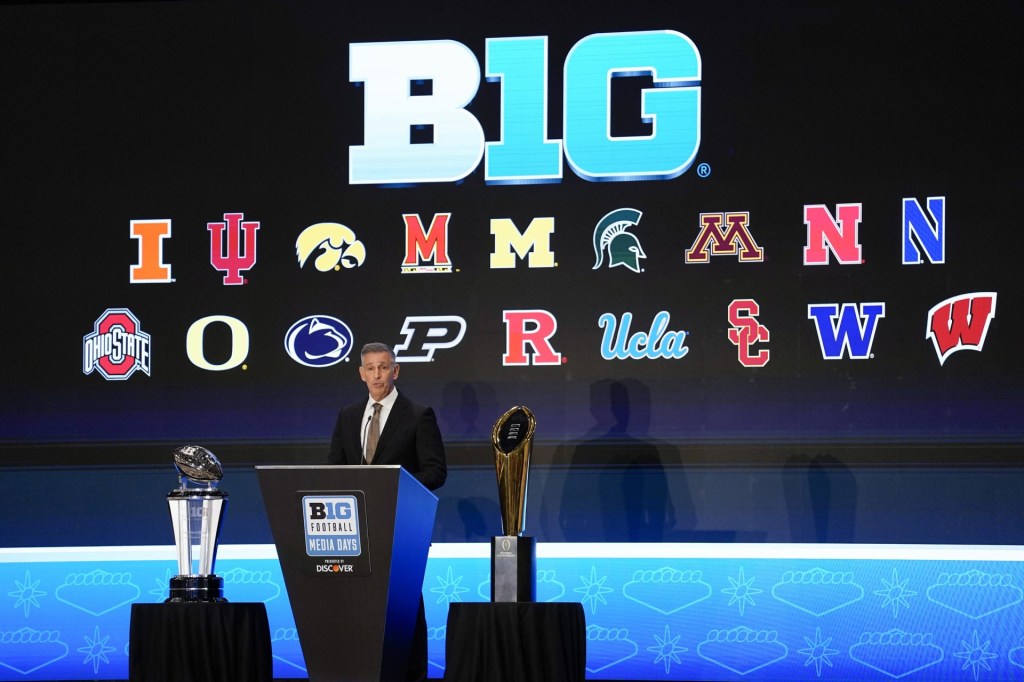
Many coaches praised the decision. Illinois football coach Bret Bielema told reporters he met his wife in Vegas, and Minnesota coach P.J. Fleck said, “I absolutely love this city,” and boasted that he was taking players to Carversteak and Prime Steakhouse at the Bellagio.
Penn State coach James Franklin, however, was a notable critic. He spoke at length about how media days in Las Vegas had a “different feeling,” and that fewer media members and fans attended than during years when the event was hosted “in Big Ten country.” (Though he acknowledged: “I think Vegas is a special place, and I think they run events as well as anybody.”) Ohio State coach Ryan Day said that the three athletes he brought were all under 21, so he had to check them into their rooms at Mandalay Bay.
Though multiple coaches alluded to the vices offered in Las Vegas, Yost said it shouldn’t be a concern for college athletes. “I would turn that around and say there is so much else to expose those athletes to, that the gambling just falls off the radar.” He noted that amateur events, like the Nike Tournament of Champions, have even found a home in the city. “There was no one worried that they were going to sneak onto a craps table.”
The working relationship will only get stronger over the next few years. In addition to all the conference-specific events, the Mountain West will even move its headquarters to Las Vegas in 2026. Then, in 2027, Sin City will host its first College Football Playoff National Championship, and its first men’s Final Four in 2028.
“Las Vegas has shown the world they have amazing venues and boundless energy to host an event like the College Football Playoff National Championship in spectacular fashion,” CFP executive director Rich Clark said when the announcement was first made last year. “I can’t think of a better stage to crown the best team in college football in 2027.”
